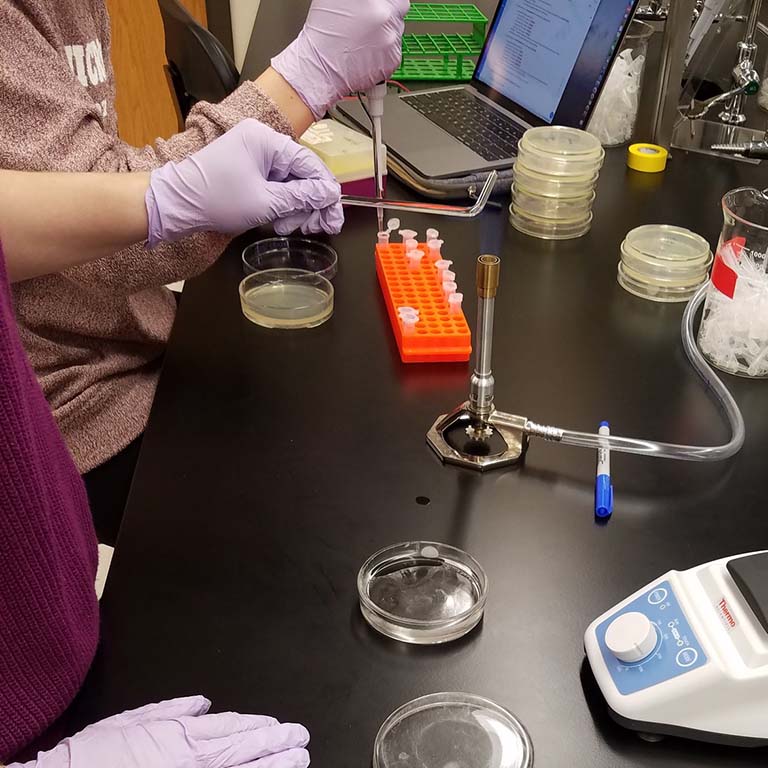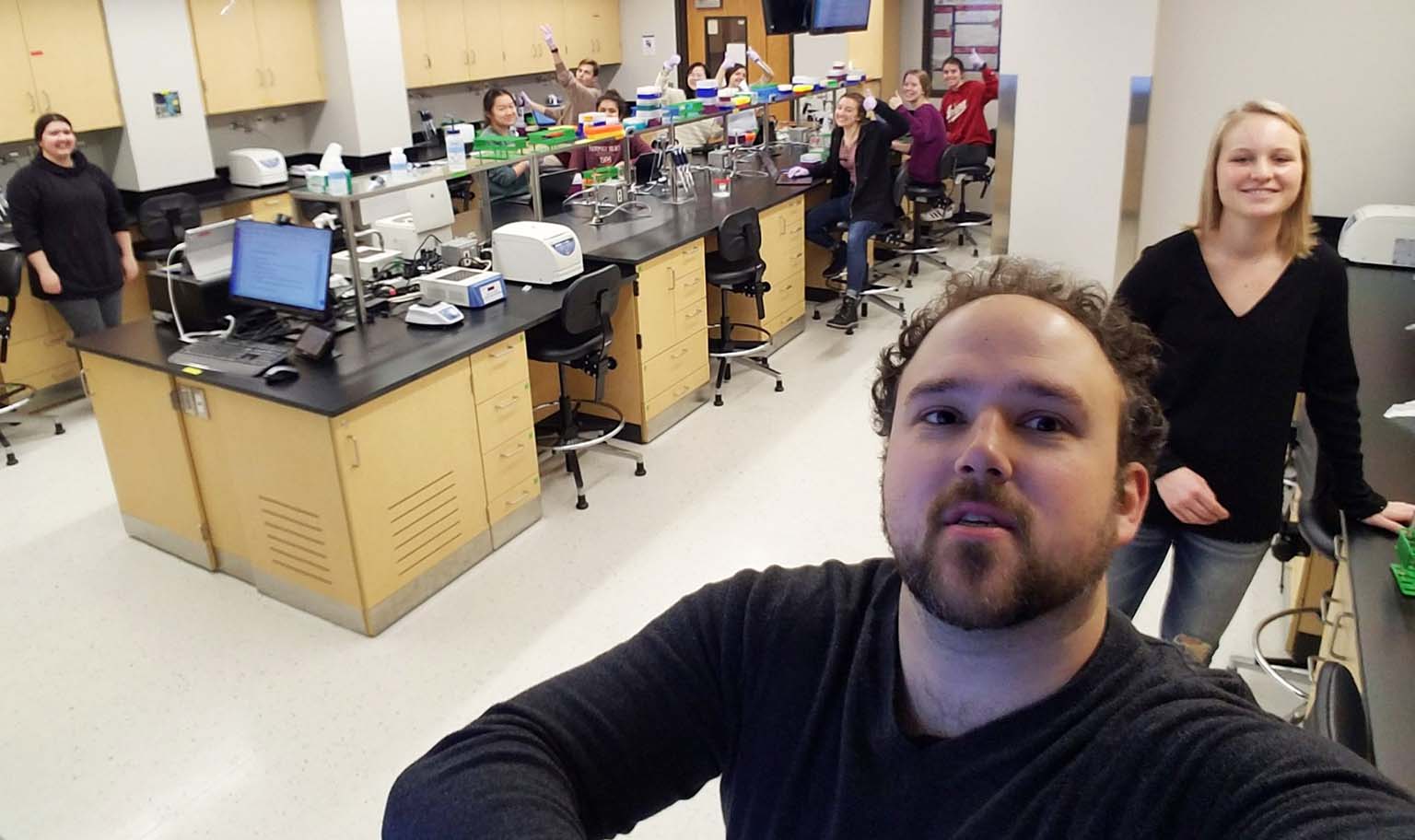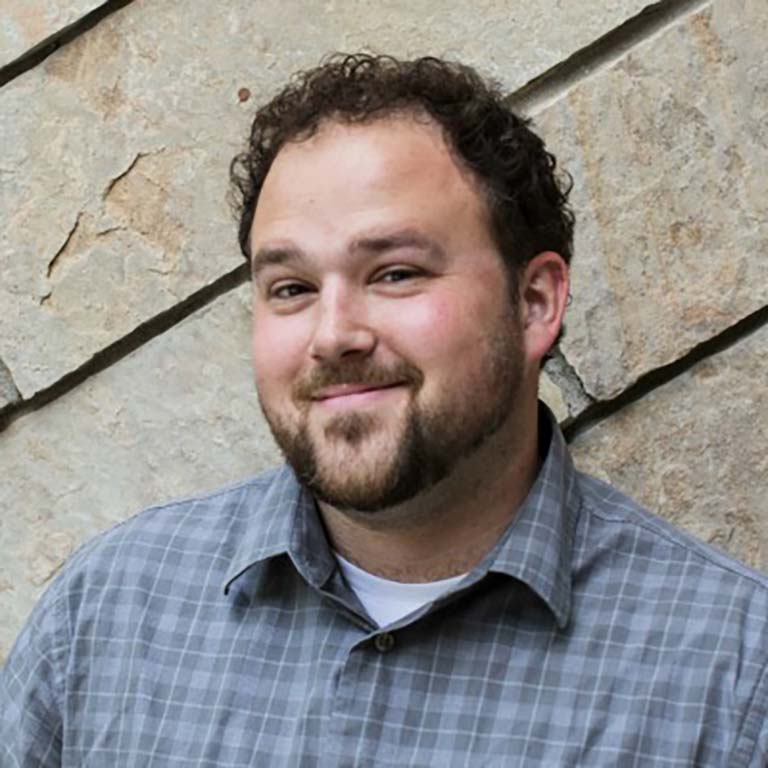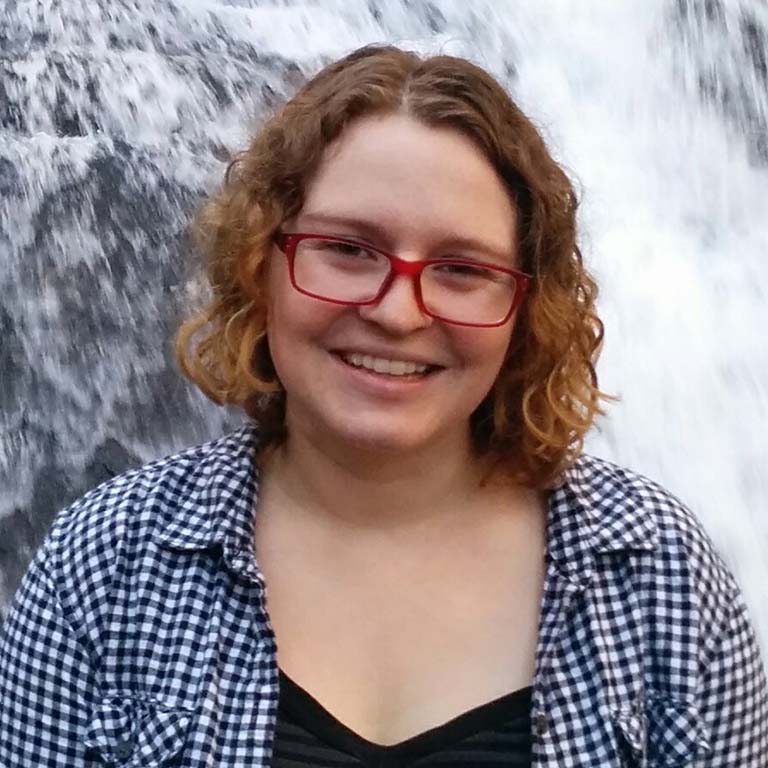When the first cohort of ASURE students arrived in 2018, they weren’t quite sure what they were getting into. With interactive professors and students conducting novel research of their own design, the new Arts and Sciences Undergraduate Research Experience (ASURE) at IU isn’t your typical freshman experience.
The ASURE program aims to avoid the “when will I ever have to know X” and instead pushes the students to ask, “Why is X happening and how can I find out more?” While the full ASURE cohort registered over 100 students, a majority of those took part in humanities research. Just under 40 students were selected to enter one of the two science tracks.
One track, opened in 2018 and led by Dr. Megan Murphy (lecturer, biology), focused on the evolution of katydid behavior in response to a parasitoid fly. Murphy’s students prepared next-generation sequencing libraries, analyzed genetic diversity, and developed novel research questions using a dataset that Murphy collected specifically for her ASURE track. This year Murphy has switched her lab’s focus to immune function in crickets and within a week of starting her lab course had students initiating an immune response in crickets and measuring resulting behavioral changes.
The other science track, also opened in 2018 and led by Dr. Mike Manzella (lecturer, biology), focused on something already established at Indiana University—engineering the genomes of Vibrio bacteria. Multiple laboratories in the IU Biology program direct their focus at Vibrio species (Rowe-Magnus, Dalia, and van Kessel to name a few), but it wasn’t until Manzella arrived in 2018 that a full batch of freshmen could take a bite out of this research. Nicknamed “Vibnauts” (in homage to University of Puget Sound Associate Professor of Biology Mark O. Martin’s amazing community of Micronauts), these students use tools developed by Dr. Ankur Dalia (assistant professor, biology) and others to alter the genome of the world’s fastest growing bacterium (Vibrio natriegens).
Starting from scratch, the students enter Manzella’s “Lab Boot Camp” and within weeks are up to speed and set free in the newly-renovated ASURE Genome Engineering lab. Following boot camp, the Vibnauts complete their one and only “cookie cutter” lab—replicating a published experiment from the Dalia lab. During this time, the students learn some advanced techniques but also have time to devote to their own research proposal. Yup, you heard me—six weeks into their first lab experience and these freshmen have not only combed through primary literature but developed a novel research question, drafted a professional proposal, and had it pass through peer review. From there until the end of the semester (when a poster and manuscript are due), it’s “off to the races.”
In collaboration with the Dalia, van Kessel, and McKinlay labs in IU Biology, Manzella’s Vibnauts have created and analyzed strains of Vibrio where copies of the “protein making” apparatus (ribosomes), regulators of stress response (RpoS), and cell-cell communication (quorum sensing) components have been removed. They have even pushed toward engineering a novel co-culture between Vibrio natriegens and another bacterium (Rhodopseudomonas palustris). Several of these projects have been picked up by the labs for further study. While this is an obvious benefit of working with IU Bloomington faculty, these students aren’t the only ones pursuing novel ideas with publishing potential. Two ASURE alumni of Manzella’s program are aiming to have their research published. One student attempted to temporarily eliminate a cell-division protein (FtsZ) to induce the industrially relevant phenotype of filamentation while the other was inspired to identify and optimize a growth assay more sensitive than simple growth rates. Throughout the ASURE program the instructors stress that scientific progress is not done in leaps in bounds, but with small steps—and these first-year ASURE students are already taking those steps.
Regardless of the topic, the ASURE research labs are proving that if you give freshmen the support, space, and opportunity—they can deliver. The ASURE program has (as of the 2019-2020 year) expanded from two science labs to six and now gives students opportunities to participate in research in biology, chemistry, biotechnology, and earth and atmospheric sciences.




 The College of Arts
The College of Arts